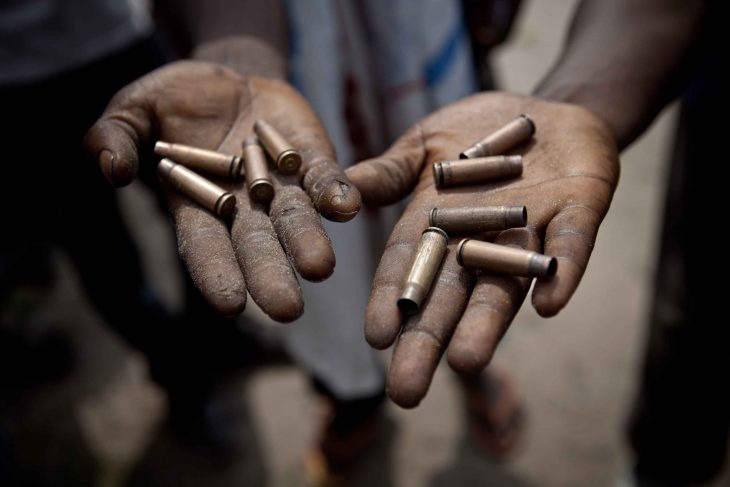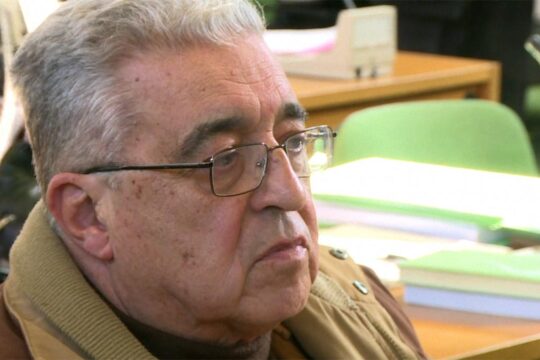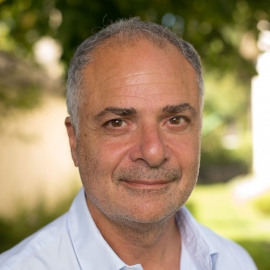Adama Dieng is the Special Advisor on the Prevention of Genocide to the U.N. Secretary General Ban-ki Moon. He is expressing to JusticeInfo.net his views on media responsibilities and challenges in conflict and post-conflict situations, on hate-speech, censorship, “peace journalism” and “responsible journalism”.
Pierre Hazan
JusticeInfo.net: How do you see the role of the media in ethnic conflicts? Do they have a preventive function?
Adama Dieng: I don’t think the media has a responsibility to prevent. But media can play a major role in combating discrimination and bigotry and in promoting intercultural understanding in a number of ways: by ensuring that acts of discrimination or stigmatisation are brought to the attention of the public, by avoiding unnecessary references to race, ethnicity, religion, gender and other characteristics that may promote intolerance, or by spreading negative stereotypes; and, last but, not least, by reporting on different groups or communities, rather than favouring some.
Q: You have been the registrar at the International Criminal Tribunal for Rwanda (ICTR) at the time of the trial of some journalists working for RTLM, called “radio-génocidaire”. As the UN special advisor on genocide prevention, how did you implement the lessons you drew on hate speech?
AD: RTLM called the Tutsis “cockroaches”, “snakes” all day long, they were not human beings any more. They were becoming dirty and dangerous insects one should crush. The Appeals Chambers of the ICTR found that RTLM’s broadcast incited the Rwandan population to commit genocide against the Tutsis.
So, how do we combat hate speech that could incite violence? In 2013, my Office developed a policy paper, including specific actions media can take, such as preventing widespread dissemination of messages of religious, racial, national or ethnic hatred, promoting principles of truth telling, impartiality and independent reporting, providing accurate and objective reporting as an antidote to rumours and propaganda, training journalists to use data mapping, investigative techniques and international journalist network to verify and expose information or incidents in situation where mass violence is imminent, and by ensuring that would-be perpetrators of hate speech or incitement cannot hide behind the anonymity of internet.
The self-regulation among the media is an innovative way of curbing hate-speech and incitement while not infringing on fundamental freedoms. In October 2013, when I was in Côte d’Ivoire, I was concerned at the level of hate speech in the media and by the statements of political actors in the press that could incite people to violence along ethnic or religious lines. I organized in partnership with the government and the U.N. peace keeping mission a conference on the prevention of hate speech and incitement to violence. Our objective is to promote professionalism among the media and stress the need for the media to respect ethical and professional codes of conduct, and also to sensitize political parties and civil society on the risks of using medias as a political tool for their own interests.
Q: Do you see a need for a better distinction between “peace journalism” and “responsible journalism”?
AD: Absolutely! Both kinds of reporting are necessary and should be distinguished from each other. When they merge, the public interest, truth and accountability suffer. This may have been the case in Kenya in 2007/2008, when ethnic violence erupted in the electoral period. Many observers – and journalists themselves – concluded that the media may have failed to fully play its role of reporting the truth for fear that it might be misinterpreted.
"In trying to calm passion, media failed to report the facts"
Shortly after the violence erupted in Kenya, a mission of evaluation found that the media have failed in one fundamental role: “The risk they took in trying to calm passion was to fail in their duty to report the facts, present them to those involved in events and let the public judge the result”. With few exceptions, in 2013, the Kenyan media did not incite hatred, and instead denounced violence and sectarian interests. Most journalists adhered to the code of conduct they had drafted in the aftermath of the 2007 violence.
Q: Do you advocate for establishing monitoring system of media on hate speech in fragile states?
AD: Media monitoring is crucial. It reduces the risk of hate media and incitement, but there are some basic guidelines: media monitoring should be done by an independent media regulator for the broadcasting media, supported by other independent initiatives of NGOs and international organisations. It should include vernacular media and on-line media, including citizen media.
Q: Would you favour a system of censorship in specific circumstances?
AD: It is neither realistic nor a good idea. Jamming is an infamous trend of the cold war era. It has resurfaced over the past decade or so, prompted in part by the explosion in satellite television. At least, 8 countries have been accused of satellite jamming the last few years, including Belarus, Uzbekistan, Iran, Libya, Syria, Ethiopia, China and Bahrain.
The deliberate jamming of broadcasters is in clear violation of international human rights law regarding freedom of expression. International human rights standards allow some restriction to freedom of expression, if this restriction serves to protect or promote a legitimate aim in international law. But most jamming that I am aware of never met this test.
In war times, jamming may be a legitimate weapon of war provided it meets the standards of the Geneva Conventions. Jamming is certainly a better option than bombing a TV or radio station, an action that could result in the death of many innocent civilians.
Q. Journalists and media are increasingly threatened and targeted in conflit and post-conflict environments. Should the UN peace keepers protect them? What avenues do you see to protect media ?
AD: There are already UN resolutions on the protection of journalists in armed conflict, such as the resolution 1738 adopted in 2006 by the Security Council. The challenge is to move from words to action. UN peace keepers are usually mandated to protect populations, and this includes journalists. But, in many cases, journalists – by nature of their work – operate independently and not in close proximity to peace keepers. Their mission to report brings them in direct contact with fighters, on the front line, away from any kind of protection that the international community can offer. Ultimately, the responsibility for their security lies with those bearing arms, who will sometimes deliberately kill journalists or manipulate information. There are the individuals we need to focus on. The key issue here is not just the fact they target journalists, but too often, it is their impunity for crimes against journalists, against human right defenders and against civilians in general.
Interviewed in New York, by PH







